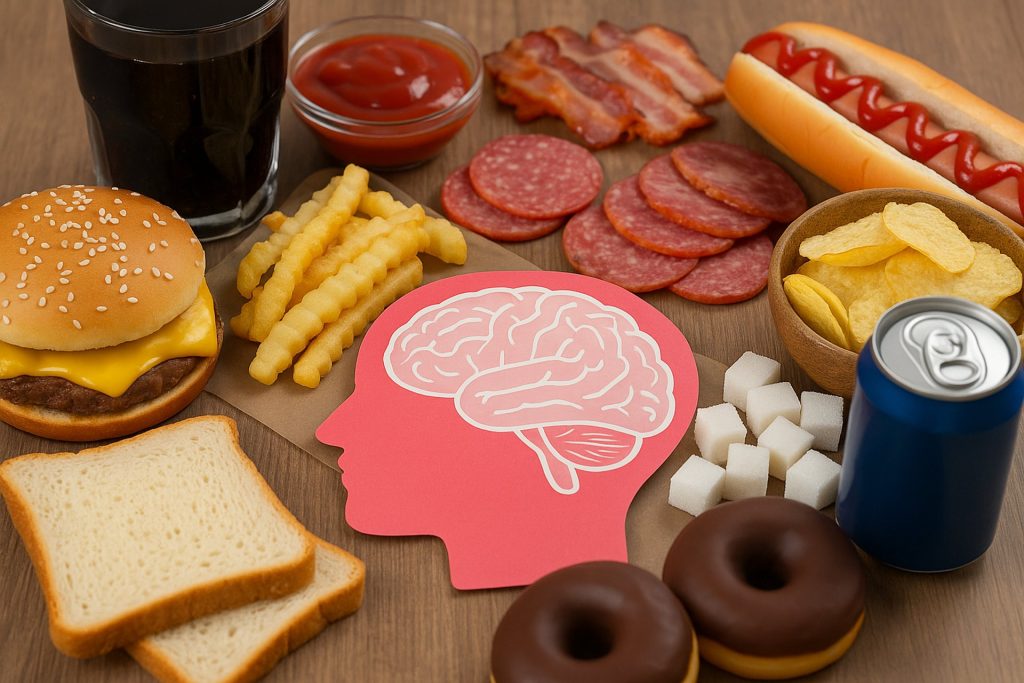Foods That May Increase Alzheimer’s Risk: What to Avoid for a Healthier Brain

Alzheimer’s disease is a progressive neurodegenerative disorder that affects memory, thinking, and behavior. While genetics and aging play a role, emerging research highlights a strong connection between diet and brain health. Certain foods — especially those high in sugar, unhealthy fats, and additives — may accelerate cognitive decline and increase the risk of Alzheimer’s.
How Diet Affects Brain Health
The brain is highly sensitive to inflammation, oxidative stress, and insulin resistance — all of which can be influenced by what you eat. A diet high in ultra-processed foods may:
- Trigger chronic inflammation in the brain
- Disrupt blood sugar balance and insulin signaling
- Impair vascular health and blood flow to brain tissue
- Promote buildup of beta-amyloid plaques (a hallmark of Alzheimer’s)
Top Foods to Limit or Avoid
1. Sugary Beverages
- Soda, energy drinks, and sweetened iced teas spike blood sugar and insulin.
- High glucose levels are linked to poor memory and brain shrinkage.
2. Refined Carbohydrates
- White bread, pasta, and pastries are quickly digested into sugar.
- May increase risk of insulin resistance and impaired brain signaling.
3. Trans Fats
- Found in margarine, shortening, and some packaged snacks.
- Associated with memory decline and increased beta-amyloid in the brain.
4. Processed Meats
- Bacon, sausages, and hot dogs contain nitrites and advanced glycation end-products (AGEs).
- Linked to increased oxidative stress and inflammation in brain tissue.
5. Artificial Sweeteners
- Aspartame and others may affect neurotransmitters and worsen cognitive function in sensitive individuals.
6. High-Sodium Foods
- Processed soups, chips, and canned foods may impair blood flow and increase risk of vascular dementia.
7. Alcohol (in excess)
- Chronic heavy drinking can lead to brain shrinkage and cognitive impairment.
- Moderate red wine may offer benefits, but overconsumption is risky.
Brain-Friendly Alternatives
Instead of harmful foods, nourish your brain with:
✅ Leafy greens (spinach, kale)
✅ Berries (blueberries, strawberries)
✅ Fatty fish (salmon, mackerel, sardines)
✅ Nuts and seeds (walnuts, flaxseeds)
✅ Whole grains (quinoa, oats, brown rice)
✅ Turmeric and antioxidant-rich herbs
✅ Olive oil and avocados (healthy fats)
Conclusion
While there’s no guaranteed way to prevent Alzheimer’s, avoiding certain foods can reduce your risk and support long-term cognitive health. A brain-healthy diet, rich in whole foods and low in inflammation-promoting ingredients, is a powerful step toward protecting your memory and mental clarity as you age.




